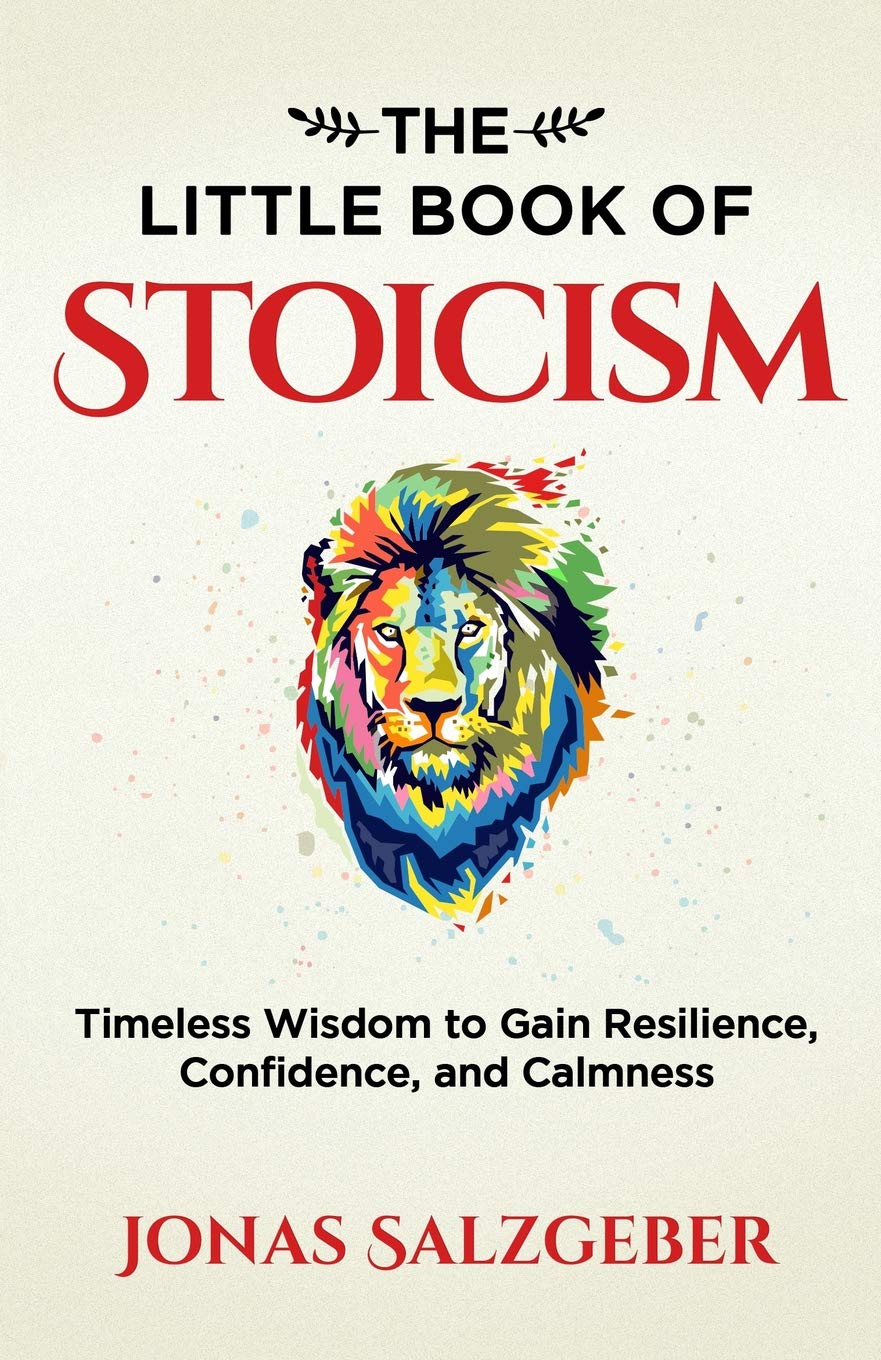The Little Book of Stoicism – by Jonas Salzgeber
Date read: 4/16/19. Recommendation: 8/10.
Both a solid introduction to Stoicism for beginners and a great reminder for those already familiar with the philosophy. Jonas gives an overview of Stoicism, including its origins and most influential philosophers. But most importantly, he details what’s in it for you with a list of practices that range from visualizations and journaling to mindsets and lifestyle shifts. At this point, I’ve read 15+ books on the subject and I still felt this was well worth my time. It’s a great resource on the subject and offers a few new Stoic angles to approach your life with.
See my notes below or Amazon for details and reviews.
My Notes:
Eudaimonia:
Become good with your inner daimon (inner spirit or divine spark). Live in harmony with your highest self.
Refers to to the overall quality of your life, rather than a temporary mood.
Seneca refers to this as tranquility – the inner peace that comes from a calm confidence in your path and trusting yourself.
Eudaimonia encompasses three things: living with areté (expressing your highest self, virtue), focusing on what you can control, and taking responsibility.
Emotional Resilience:
“To bear trials with a calm mind robs misfortune of its strength and burden.” Seneca
Not about repressing emotion, but about acknowledging, reflecting, and learning.
“We can train ourselves to act calm despite feeling angry, act courageously despite feeling anxious, and going east despite the wolf pulling west.” JS
“I buy tranquility instead.”
Direction:
“If a man knows not which port he sails, no wind is favorable.” Seneca
“Most of what we say and do is not essential. If you can eliminate it, you’ll have more time, and more tranquility.” Marcus Aurelius
Via Negativa (Nassim Taleb): Acting by removing is more powerful and less error prone.
Mindfulness:
“It is a continuous vigilance and presence of mind, self-consciousness which never sleeps, and a constant tension of the spirit. Thanks to this attitude, the philosopher is fully aware of what he does at each instant, and he wills his actions fully.” Pierre Hadot
Stimulus -> follow immediate impression -> impulsive, often irrational response.
Stimulus -> pause to evaluate, challenge initial impression -> rational decision.
Awareness robs negative emotions of their capacity to destroy.
Character:
“Character beats beauty.” JS
“If you want anything good, you must get it from yourself.” Epictetus
“What would have become of Hercules, do you think, if there had been no lion, hydra, stag or boar – and no savage criminals to rid the world of? What would he have done in the absence of such challenges?” Epictetus
Train yourself to do what others dread and resist what others can’t.
The Stoic Archer:
Focus on the process – evaluate what’s within your control. Preparation, effort, then let the arrow fly.
Focus on getting the conditions right (your intentions and actions). Remember, the ultimate outcome is often external. If you do the right things consistently over a long enough time frame, there will be an eventual payoff. Just don’t bank on it every time.
“Know that sometimes things will not go your way even if you do your best, and regardless of whether you deserved it or not. Don’t confuse your aspirations with how the universe should turn out.” JS
Acceptance vs. Resignation:
Acceptance = making the most of it, overcoming challenges, seeing them as opportunities (the obstacle is the way).
Resignation = giving up and allowing apathy to dictate your life.

